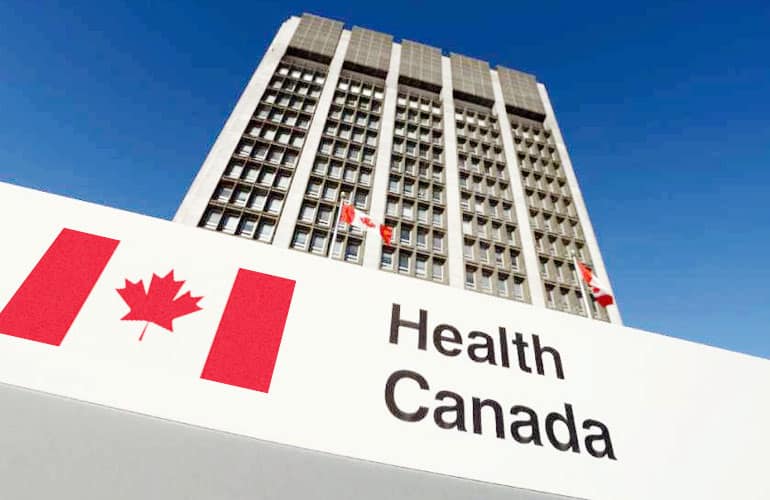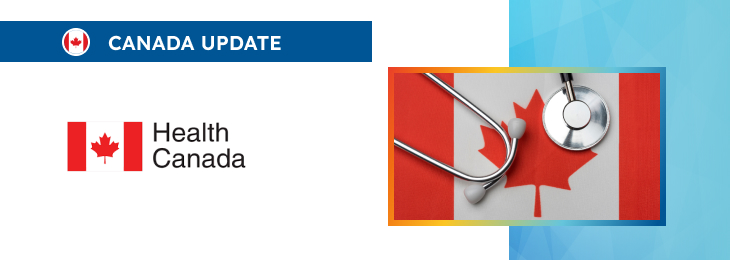The present article highlights the key points related to the changes the Canadian authority intends to introduce in order to mitigate the risks associated with potential shortages in the supply of healthcare products intended to be marketed and used in the country.

Table of content
Health Canada, the country’s regulating authority in the sphere of healthcare products, has published a notice of intent dedicated to shortages in the supply of healthcare products. The document describes the regulatory approach the authority intends to apply in order to address specific risks, as well as additional clarifications associated thereto.
However, it is important to mention that the document is non-binding in its legal nature and serves merely informational purposes.
Introduction
In particular, Health Canada is proposing significant amendments to the Food and Drug Regulations and the Medical Devices Regulations. These proposed measures are designed to address and mitigate the harm to public health caused by shortages of health products.
The amendments are intended to:
- Prevent shortages of drugs and medical devices for human use.
- Reduce the impacts of shortages that cannot be prevented.
The regulatory amendments and other actions planned over the next four years focus on building better collective capacity in three key areas: Planning, Prevention, and Response.
The document further describes each of these concepts in detail:
- Planning: Design systems and standard operating procedures to promote readiness and rapid response to shortages.
- Prevention: Detect risks of shortages early and intervene to avoid them before they happen.
- Response: Detect shortage signals early, minimize the impacts of shortages when they occur, and restore access to needed products quickly.

Regulatory Background
The authority acknowledges that health product shortages are a global problem that is becoming increasingly severe in Canada. Shortages can result from reductions in supply, increases in demand, or shifts in both supply and demand.
Disruptions in the supply chain at any point can significantly affect the overall supply chain, causing shortages. According to the notice, Canada, representing about 2% of global sales, heavily relies on imported health products.
Over 80% of activities required to produce drugs sold in Canada are conducted in other countries. Many drugs are sourced from a single supplier, and the consolidation of global supply chains increases the likelihood of shortages.
Similar challenges exist for medical devices, where most are imported, and the supply chain is complex due to the numerous parts and components required for manufacturing. The COVID-19 pandemic has further highlighted the vulnerability of Canada’s health product supply chain.
Although the pandemic’s severity has decreased significantly, the number of critical drug shortages remains high, now affecting patients with various health conditions. For medical devices, the overall number of reported shortages has decreased, but critical shortages of non-COVID-related devices are increasing and are more complex.
Need for Action
Recent critical national shortages have underscored the need to protect Canadians from the harms caused by health product shortages. Disruptions in the supply chain can cause hardships for Canadians and stress the healthcare system.
Governments, industry, healthcare partners, and the public must work together to improve resilience against shortages, enabling the country to withstand, adapt to, and recover from supply chain challenges. While it’s not always possible to anticipate or prevent shortages, measures can be developed to mitigate their impacts.
Health Canada is taking action to prevent shortages before they happen and reduce their impact when they cannot be prevented. This is outlined in a four-year plan on health product shortages (2024-2028).
Part of the said plan involves advancing amendments to the Food and Drug Regulations and the Medical Devices Regulations. These amendments will help ensure that Canadians have access to necessary health products and reduce the harm caused by shortages.
Health Canada’s proposed amendments are informed by an online consultation conducted from June 5 to August 31, 2023, which identified challenges and potential solutions for building a resilient supply of drugs, medical devices, and other health products. An external advisory committee, along with regulated parties, stakeholders, and partners, provided ideas on better preventing and reducing shortages.
Proposed Changes
Health Canada proposes to amend the Food and Drug Regulations to give the Minister the authority to:
- Apply shortage regulations to additional drugs or classes of drugs, such as a specific subset of non-prescription drugs.
- Compel information about any shortage that could cause harm, regardless of whether the drug is subject to shortage reporting.
- Expand the exceptional importation framework to address shortages and discontinuations that could cause harm by bringing in substitute drugs temporarily.
- Allow the exceptional sale of foreign-authorized, domestically manufactured drugs to address shortages.
- Extend the expiration date of a drug lot or batch if data supports extending the shelf life during a shortage.
- Shift the requirement to report discontinuations from 6 months before the discontinuation date to 12 months or within 5 days of being known.
Additional requirements would include:
- Manufacturers ensuring 3 months of safety stock for critical and vulnerable drugs.
- Manufacturers establishing and maintaining plans to reduce and prevent shortages for critical and vulnerable drugs.
- Distributors and wholesalers reporting significant increases in demand for critical and vulnerable drugs.
- Importers of exceptionally imported foreign-authorized drugs reporting serious adverse drug reactions to Health Canada.
In addition to the above, the document provides the proposed amendments to the Medical Devices Regulations which include:
- Clarifying the requirement to report discontinuations for license cancellation separate from shortage signals.
- Shifting shortage and discontinuation reports to a third-party website.
- Removing the requirement for manufacturers or importers to provide a summary of the information used to determine a medical device shortage.
- Removing exemptions to shortage reporting for devices with back orders of less than 30 days or available substitutes.
- Using the exceptional importation framework to reduce safety risks by addressing shortages or risks of shortages that could cause harm.
- Requiring importers to notify Health Canada if the foreign authorization of an exceptionally imported device is suspended or canceled.
Manufacturers and importers would also be required to:
- Report all discontinuations of medical devices in scope for shortage reporting, regardless of whether they lead to an actual or anticipated shortage.
- Report shortages at least 6 months ahead of the anticipated start date or within 5 days of being known.
- Report discontinuations on the third-party website at least 12 months before the date or within 5 days of being known.
- Have documented procedures to assess their ability to report shortages and meet demand, improving preparedness to prevent and mitigate shortages.
Next Steps
Input from interested parties on the proposed changes will support the publication of the regulatory proposal in the Canada Gazette, Part I. The public comment period is expected to take place in autumn 2024.
To provide input, interested parties can participate in the consultation on the notice of intent to amend the regulations to address health product shortages in Canada. Additional comments on the regulatory proposal can be submitted during the public comment period following its publication in the Canada Gazette, Part I.
Conclusion
In summary, the present notice published by Health Canada describes in detail the approach the authority intends to apply in order to address the risks to public health associated with potential shortages in the supply of medical devices and other healthcare products. The document outlines the key amendments to be introduced to the relevant regulations and explains the ideas behind them, also informing the interested parties about the opportunity to contribute to the development of a modified regulatory framework by providing feedback and comments on the matter.
How Can RegDesk Help?
RegDesk is a holistic Regulatory Information Management System that provides medical device and pharma companies with regulatory intelligence for over 120 markets worldwide. It can help you prepare and publish global applications, manage standards, run change assessments, and obtain real-time alerts on regulatory changes through a centralized platform. Our clients also have access to our network of over 4000 compliance experts worldwide to obtain verification on critical questions. Global expansion has never been this simple.

